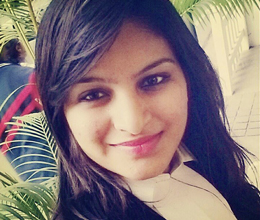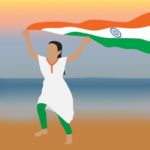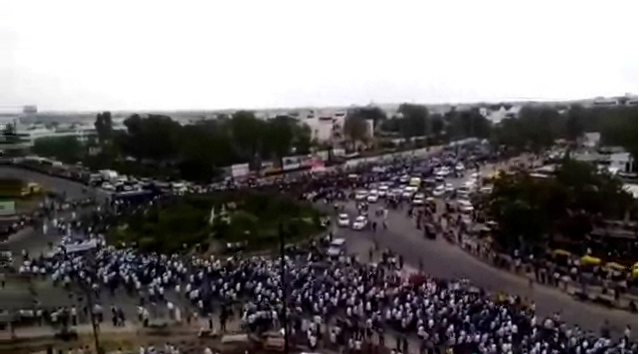Patidar Reservation
‘We are the descendants of Lord Ram… we are the descendants of Sardar Patel’
– Hardik Patel
It is definitely a matter of stupefaction if you haven’t come across a Patidar (Patel) at least once in your lifetime. They are spread out and a prominent community not just in India but abroad as well. On the popularity meter, it is the second most popular surname in India and 11th most popular surname in the world! Enough said!
History of Patidars:
Ironically during the Moghul rule, Patidars were authorized to collect land revenue. Patels, therefore are originally known as landowners who later went on to become diamond merchants as well. It was the Patidars who moved from the villages to Ahmedabad and started settling there. It was only when the educated and prosperous Patidars began developing the city, did it become the prosperous city of Ahmedabad.
Years later, it was in 1981 under the ministership of Madhavsinh Solanki, the reservation for socially and economically backward classes was introduced under the recommendation of Bakshi Committee. People robustly condemned it, and riots broke out. Solanki resigned but gained power again, supported by Kshatriyas, Harijans, Adivasis and Muslims, which caused Patidars to lose their influence. Truth be said, this really did not matter to Patidars as over the years they had all built an empire for themselves.
It doesn’t come as a surprise that when a survey of land ownership was conducted by the Centre for Social Studies, Surat under the dictatorship of Gyansham Shah, in 1984, it was observed that, atleast 70 percent of Patidars owned atleast 6 acres of land per household!
Hardik Patel leading the Patidars demand for reservation:
However, since July, 2015 a sword-weilding Hardik Patel of Gujarat who on his own admission has scraped through college and was unable to land a job, has turned out to be a surprise package with exemplary oratory skills and has the support of millions of Patidar asking for the caste system to be abraded or to provide reservation to the Patidars as well. They have blamed Indian Prime Minister, Narendra Modi of giving them false promises of providing them with secure jobs, which he failed to fulfil after election. It is eldritch how Patels that were the first globalized liberalizers when India was stuck with license permit raj, are now asking for lower caste status.
Patidars who have joined the protests with Hardik Patel are vexed with people’s stance that all Patels are rich. They said that Gujarat is a state where many educated people do not get an opportunity to work, caste system has made it difficult to get admission in schools and colleges and they have been forced to sell the land they have in order to get their children admitted in private institutions. In pursuance of this Hardik Patel has planned nation-wide pro-reservation agitation. From, the mass movement that he has pulled off so well, it is clear that he has some amount of political backing.
Hardik Patel wanted to take his agitation for inclusion of Patels in the OBC category on the national level by bridging the gap between other neglected castes. However, when he was having a meeting with one such community, Gujrars of Rajasthan, just minutes into his speech, he was interrupted by a member to ask how he could allow inclusion of Jats into the OBC list when OBCs have objected to their inclusion before the Supreme Court. He has no idea how many castes are included in the OBC list and does not seem to care. Often his, statements contradict from ‘I am not against reservation’ to ‘reservation has prevented the clever Patidars from landing the jobs they deserve.’ He is ignorant of a lot of facts clearly but, there are millions of people who as a matter of fact are relying on him to get their caste recognized!
Caste Discrimination is an unfortunate truth:
It is facetious as well as unsettling all at the same time, for India is moving from preventing caste discrimination to protesting to be declared as one of the backward castes. However, the truth remains that little has been done to check if reservations have really helped. It has never been assessed and renewed to meet the present situation.
One of the only credible assessments conducted by the Economist said that the percentage of dalits in the highest level of civil services has increased from 1.6% in 1965 to 11.5% in 2011. It also pointed out the steady improvement in dalit literacy and level of education. However, it observed that while it did look like reservations have helped in the development of these communities, it could also be due to increase in the number of institutions. One cannot be sure.
The Economist has quite painfully stated that Indian Government has never looked at whether reservations work, it was never about equal opportunity, it is about expanding reservation to include new communities, in other words voters and accordingly distribute their political power.
This indifference from the government has brought several cases of reservation before the judiciary but the government brings in an amendment anyway to have it their way. For example, the 1992 Supreme Court judgement in Indra Sahwney & Ors v. Union of India & Ors that disallowed reservation in promotions was overturned by the Parliament’s 77th constitutional amendment in 1995. The other decision of the Supreme Court that still holds good is to restrict the reservation limit to 50%. However, several states still violate this limit.
Conclusion:
In a situation like this, Patidars are only one such community that are now voicing out their protest. It is not going to be long before other communities follow suit because low pace of job creation, expensive education etc., is a reality and it is not just haunting the community in Gujarat but many across the country.
As many as 7 people lost their lives in the protest by the Patidar community, that brought Gujarat to a standtill for several days. In the latest news, the reverse Dandi March from Dandi to Sabarmati Ashram proposed by Patidar Amanat Andolan Samiti convenor, Hardik Patel has not been permitted yet. What the Patidar community is asking is inconvenient. Besides, no one has asked for entire reservation system to be scrapped earlier, if his or her community wasn’t included in the list. However, on a positive note, this might draw the government’s attention to discuss its limitations and the convoluted mess that the reservation system has created.
In the latest, in April 2016, Gujarat government introduced 10% quota in jobs and college admissions to people belonging to general category with an annual income of less than 6 lakhs per year.
Picture Courtesy: Wikimedia







